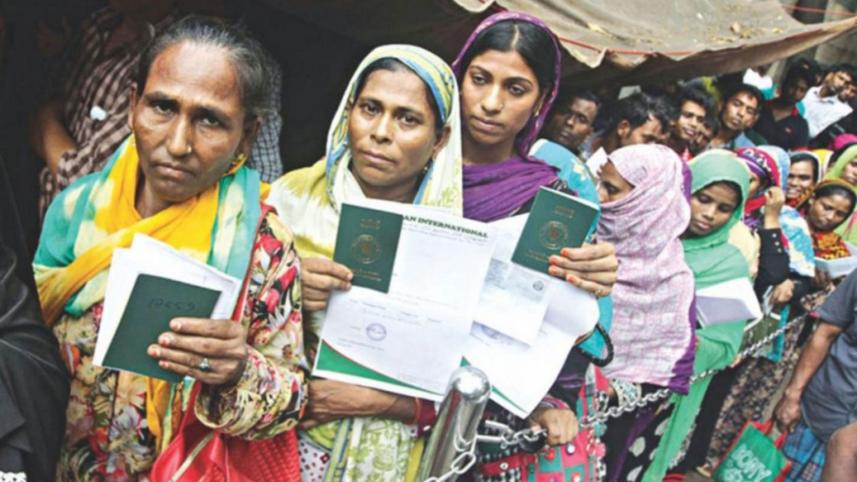Protecting migrant workers during pandemic

The COVID-19 pandemic posed a significant threat to the migrant workers all around the world. Migrant workers from Bangladesh, among others, were one of the worst sufferers. The pandemic gave birth to a two-faced challenge: one for the workers who had to return from different countries with the fear of not getting a job in near future and other for those workers who got stranded abroad with little to no protection or rights. In this context, on April 30, 2020, 'The Application of Migration Policy for Decent Work for Migrant Workers-Phase II' project of ILO Bangladesh, in collaboration with the ILO Bangladesh Country Office and with technical support of Regional Migration Specialist, Shabarinath Nair (ILO Decent Work Team for South Asia), organised and hosted an online meeting and dialogue with the Trade Unions and representatives of Civil Society Organisations working on migration. The objective was to understand the current and upcoming challenges in the migration sector, including the efforts being taken and actions required to ensure the rights, decent work, and welfare of all Bangladeshi migrant workers. Based on the discussions with the representatives of the trade unions and civil society organisations, below is a summary of their recommendations for ILO, partner UN agencies, the government of Bangladesh:
- Need for transparency in the process and management of financial assistance by the government to the affected migrant workers.
- Need for a proper database and needs assessment of migrant workers.
- Resolve issues around the tenure of the employment visa – both for those in the destination country and for those still in Bangladesh.
- Include migrant families under a social protection mechanism.
- Initiate a process for negotiating with employers about job security, especially for women migrant workers.
- Reintegration plans need to be programmed for longer-term support.
- Guidance on entrepreneurship development and support with the funds provided by the government for the returnees.
- Increased skills development in IT and ICT for the future overseas market.
- Learn from the migrant experience of dealing with Covid-19 themselves, or by the country of destination. Since February, migrants have been returning from different countries while many still continue to live in uncertainty in those countries. Nonetheless, these workers have first-hand experience of how those countries are tackling the pandemic. So rather than stigmatising migrant workers and viewing them as a risk or a burden, they should be considered as a valuable resource to help develop the national response to the pandemic in their homeland.
- Increase inter-ministerial coordination for addressing the possible rise of human trafficking in the post-COVID 'new normal'. There were also several suggestions to form a Combat COVID-19 Committee for Migrant Workers with all the relevant stakeholders. Such coordination is not structured yet among the government and NGOs working with migrants caught in the pandemic crisis.
- Scale-up immediate urgent support; food aid and counselling. So far with hundreds and thousands of returnees, the immediate aid has been too little and ad hoc – that support needs to be extended to a wider group of returnees and for a longer period of time.
- Need for a multi-stakeholder strategic plan and guidelines for managing the crisis at home, considering various assessments and recommendations.
Compiled by Law Desk (Source: Impact of COVID-19 on Bangladesh Overseas Migrant Workers Responses and Recommendations National Online Meeting with Trade Unions and Civil Society, accessed at ILO.ORG).



 For all latest news, follow The Daily Star's Google News channel.
For all latest news, follow The Daily Star's Google News channel.
Comments